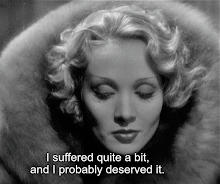The following passage is a bit that does not appear in 1973 translation (by Ralph Manheim, published by A Fawcett Crest Book, Fawcett Publications, Inc. Greenwich, Connecticut), on page 40 (photos below). The missing passage is 3.5 pages long.
However, it appears in the original of the book ("Shatten im Paradies”, Sonderausgabe für den Lingen Verlag, Köln mit Genehmigung des Verlages Droemer Knaur Nachf. München).
It is interesting how American publication censored Erich Maria Remarque’s writing about Nazi immigrants in New York, and an unsettling story of a Jewish immigrant who faces unease after Holocaust. Again, I must apologize for amateur translation. I am including screenshots of the original German publication.
______________________
“… I loved solitude when I was younger. But I became weary of it as during my years of wandering and being a refugee. The reason of me fearing loneliness wasn’t the fact that I was overwhelmed by dark thoughts and terrible mood. But solitude was dangerous now! If a man is forced to hide constantly, then he needs to be surrounded by people. For people guarantee his anonymity.
I came out in the street and I felt like I was surrounded by thousands of anonymous friends. This wide street had lots of doors, alleys and entries and even better, it was full of people. I could disappear among them with ease!”
***
- We were forced to adopt the mindset of a murderer, - I told Kahn while dining at a pizzeria, - you probably won’t relate. But the rest of us, when they beat us up, we could not respond. How do you think, will we ever forget that?
- Fear of the police will probably always exist, because this fear is natural and it exists in every person. But it’s the single individuals and general society who is to be blamed for it. Once can only space from these mistakes in this country, which was founded by immigrants. They still come to settle here every year in thousands. - Kahn laughed. - America is such a curious country! You only need to answer two questions here to be considered a great person. First question: “Do you love America?” You should answer that it is the greatest country in the world; Second question: “Would you like to become American?” If you say “Yes of course!” They’ll give you a clap on your back and tell you that you’re great!
…..
(Kahn, friend of Robert Ross, the main character and a person who helps him orient himself in New York)
- New York is an Italian city, but at the same time it’s Spanish, Jewish, Hungarian, Chinese, African and a real German city too.
- You’re saying it’s German?
- Yes, of course! You have to walk along the 86th street and you’ll see shining breweries from Heidelberg, “Hindenburg” cafes, Nazis, German-American sports clubs and teams who sing the song: “Heil dir im Siegerkranz” (“Blessed be your winning crown”). Restaurants here are full of guests who arrive with black-white-red flags (Imperial flag of Germany in 1871-1919), not the black-red-golden flags (the flags of Weimar republic in 1919-1933, new flag of the German Federation).
- They don’t have swastikas then?
- No, they can’t carry them so openly. You’ll meet much worse Germans in here than in Europe. The shadow of sentimentality for their homeland which they had to abandon still follows them, - said Kahn ironically, - so now they listen with great pleasure what is happening in their country, full of patriotism, love of beer and their Führer.
I stared at Kahn.
- What’s wrong?
- Nothing, - said I. - All of that exists here too?
- Americans are noble people and they don’t see this as a serious matter. Same way they don’t see the war as a serious matter. (WWII)
- Yes, like war!
I could not understand it. This country was separated by oceans from other countries during the war. None of the hostile countries shared borders with it. This country hasn’t been bombed or shot at by any other.
- They would start a war when a neighboring, hostile country violates the borders, - said I, - America has no borders with Japan or Germany. This is making the war so surreal. One sees soldiers here but there are no wounded. Are they somewhere outside the country? Do they even exist?
- There are wounded soldiers and ones who fell in battles too.
- All of this seems so surreal and one thinks that nothing is happening.
- But all of that is happening!
I stared at the street and Kahn followed my stare…”
__________________________________
English publication (PDF available)
















No comments:
Post a Comment